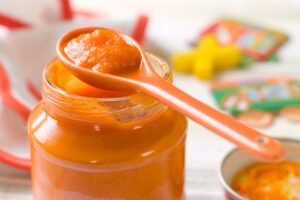Let’s talk about a pantry staple we all know and many love – those boxed mashed potatoes. Fast, convenient, and comforting. But did you know these boxed wonders have been banned in Japan, Europe, Canada, Australia, and New Zealand? Yeah, you read that right. And the culprit? A little ingredient called Butylated Hydroxyanisole, or BHA for short.
What on Earth is BHA?
BHA is a preservative often added to our food, especially those with high fat content, to help keep them fresh and long-lasting. We see it a lot in processed foods like chips, preserved meats, and yep, our dear boxed mashed potatoes. However, its effectiveness in preventing oxidation in our food has landed it in hot water due to some unsettling health concerns.
So, What’s the Big Deal About BHA?
The problem with BHA is that it has been linked to cancer in certain animal studies. Now, I know what you’re thinking, we’re not rodents, but it’s enough to raise a few eyebrows. The International Agency for Research on Cancer (IARC) has even classified BHA as “possibly carcinogenic to humans”. Now, that’s a red flag for me as a parent.
How Have Different Countries Responded?
Europe, being the cautious parent that it is, has set strict rules about BHA in their food. Their Food Safety Authority (EFSA) has banned our beloved boxed mashed potatoes because of the BHA levels. Now that’s a wakeup call!
Japan, another careful guardian, has taken a leaf out of Europe’s book. Backed by their Food Chemical Research Foundation, they’ve also banned boxed mashed potatoes with BHA.
Canada, not wanting to miss out on the action, has also hopped on the ban-wagon. Health Canada and the Canadian Food Inspection Agency reviewed the research and gave BHA the red card in boxed mashed potatoes.
Down under, Australia and New Zealand, regulated by Food Standards Australia New Zealand (FSANZ), have shown BHA the door in their boxed mashed potatoes too.
What About Food Safety Organizations?
The big dogs, like the World Health Organization (WHO) and the Food and Agriculture Organization (FAO), play a massive role in these decisions. They keep an eye on the research and give advice. But remember, their guidelines are just that – advice. It’s up to individual countries to make their own rules.
What’s Up With the United States?
Now, here’s the kicker. The United States hasn’t banned BHA, not even in our boxed mashed potatoes. The U.S. Food and Drug Administration (FDA) still considers BHA as “Generally Recognized As Safe” (GRAS), despite the hullabaloo. I can’t help but wonder why we’re out of step with these other countries.
What’s the Bottom Line, Fellow Parents?
The takeaway here, friends, is that it’s crucial we stay informed about what’s going into our, and our kids’, bodies. It’s clear that more research is needed on BHA and food additives in general. As parents, we need to keep our eyes peeled and ears to the ground. Remember, the decisions we make at the grocery store can have a big impact on our family’s health, so let’s make them count!
References:
- Food Revolution Network. “Banned Ingredients in Other Countries.” Foodrevolution.org. https://foodrevolution.org/blog/banned-ingredients-in-other-countries/
- ScienceDirect. “Butylated Hydroxyanisole.” Sciencedirect.com. https://www.sciencedirect.com/topics/materials-science/butylated-hydroxyanisole
- Regulatory Toxicology and Pharmacology. “An updated review of the toxicological effects of butylated hydroxyanisole and butylated hydroxytoluene.” (2021) https://doi.org/10.1016/j.yrtph.2021.104887
- David Suzuki Foundation. “Dirty Dozen: BHA, BHT.” Davidsuzuki.org. https://davidsuzuki.org/living-green/dirty-dozen-bha-bht/
- Rabin, Roni Caryn. “What Foods Are Banned in Europe but Not Banned in the U.S.?” The New York Times, 28 Dec. 2018, www.nytimes.com/2018/12/28/well/eat/food-additives-banned-europe-united-states.html.
- Sato, S. “Regulation of food-related carcinogens in Japan.” Regulatory toxicology and pharmacology : RTP vol. 11,2 (1990): 149-57. doi:10.1016/0273-2300(90)90018-7
- Canada, Health. “Government of Canada.” Canada.Ca, / Gouvernement Du Canada, 3 May 2017, www.canada.ca/en/health-canada/services/food-nutrition/food-safety/food-additives/lists-permitted.html.
- “Colours and Food Additives Reported as Banned.” Australian Food Standards, www.foodstandards.gov.au/consumer/additives/pages/coloursandfoodadditi5752.aspx.
- “Food Safety.” World Health Organization, www.who.int/news-room/fact-sheets/detail/food-safety.
- Martín, José Manuel, et al. “The Antioxidant Butylated Hydroxyanisole Potentiates the Toxic Effects of Propylparaben in Cultured Mammalian Cells.” Food and Chemical Toxicology, vol. 72, 2014, pp. 195–203, doi:10.1016/j.fct.2014.07.031.








